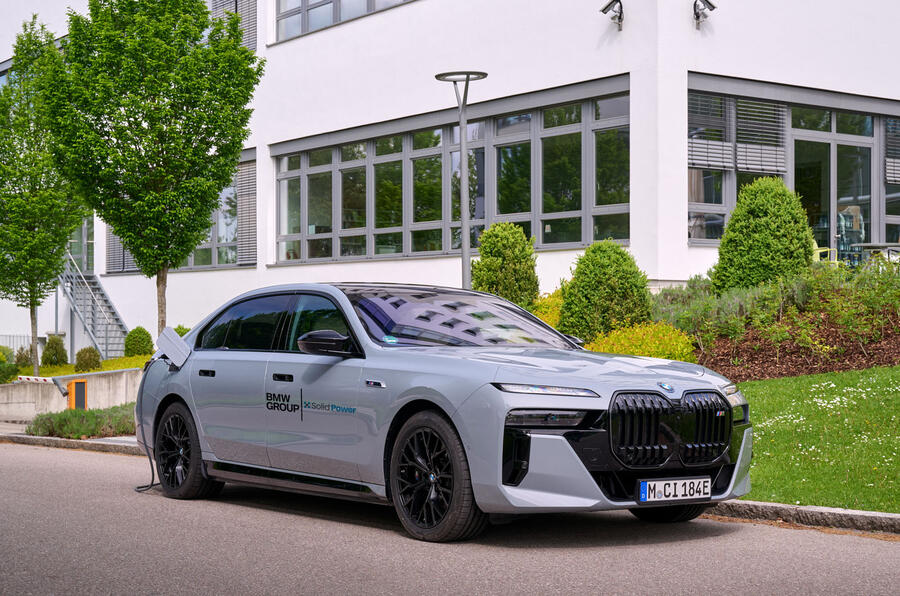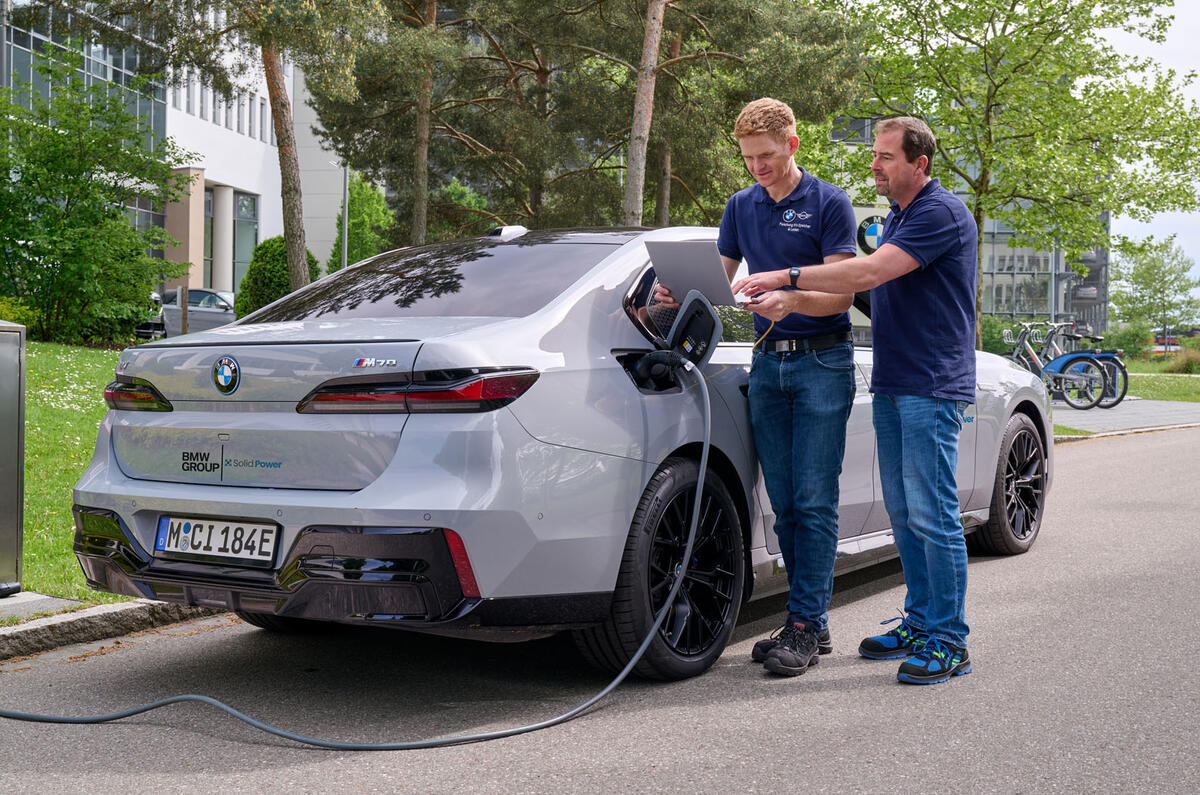BMW Group has fitted a BMW i7 with a solid-state battery as it ramps up testing of the next-generation technology.
Working with partner Solid Power, the pack – known as ASSB, for all-solid-state battery – uses cells that yield a higher density but which are smaller and lighter than those in the lithium ion batteries used by BMW today. In simple terms, this means more energy can be stored in smaller pack sizes.
This prototype pack also uses the current Gen5 architectures’ construction principles – prismatic cells in modules, rather than the more advanced Gen6 Neue Klasse bolted-to-pack cylindrical cells - that have been adapted in order to house Solid Power’s ASSB cells.
This suggests the group's current platforms could be modified to take the next-generation technologies in a push to bring solid state batteries to market quicker than had previously been expected.
Speaking in February, Martin Schuster, BMW Group’s vice-president of next-generation battery tech, told Autocar that the group was eight years away from needing a solid-state battery option in its EV line-up. Schuster said that whlie solid-state battery tech could be used now, the group's main focus was to continue the development of lithium ion batteries. He added there was still “a long way to go” with current battery technology.

However, the new test vehicle shows the group's "technology-open mindset", according to Schuster, who added: "We are continuously advancing the development of new battery cell technologies."
The car will now be tested over the coming months to gather information on temperature and operating pressure, said BMW.
Solid-state batteries are widely thought to be the holy grail of EVs and crucial to their longevity: they offer greater capacity and more range than similar-sized batteries in use today. Their simplified make-up is lighter and less susceptible to temperature variations, and they can be charged more quickly.
Today’s announcement follows that of rival Mercedes-Benz, which earlier this year claimed it was close to putting the technology into production.








Join the debate
Add your comment
Yeah, could be, lighter batteries,more range, quicker charging, what else?
The funny thing about this article is Auto car run a BMW story in April 2021 with BMW promisinig that solid state will be suitable for production in 2029, you can still find it.
I guess wet state batteries are progressing at such a speed solid state can now wait another 4 years.